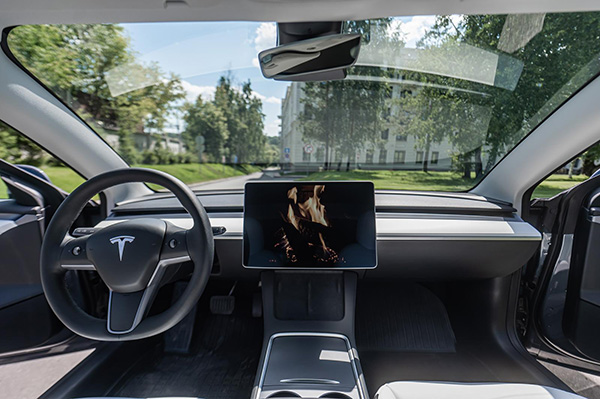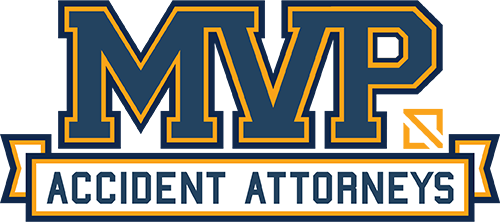
Common causes of driverless car crashes
Who’s responsible for a crash with a self-driving car?
The term “self-driving car” is a somewhat broad term that can be a little misleading. Today, cars typically fall under the “self-driving” category if they have some type of driver support technology or an autonomous system.
Driver support technology is widely available in many vehicles on the road today. It includes technology such as lane-keeping assists and adaptive cruise control.
Cars with autonomous systems, on the other hand, are supposed to be able to drive the car for you. While no truly autonomous vehicles are on the road today, Waymo, a sister company to Google, is currently testing autonomous rideshare vehicles in Phoenix. So a world in which we have fully self-driving cars on the road may not be too far off.
To many, the thought of having autonomous vehicles on the road means progress. But others question whether these vehicles are safe. Can we really trust a machine to make split-second decisions, and can these cars ever be as safe as those driven by human drivers?
To answer these questions, let's look at the current accident data on autonomous vehicles and discuss the most common causes of accidents involving these cars.
Common causes of self-driving car accidents
Rear-end collisions, in which a human-operated vehicle runs into the back of a driverless vehicle, are the most common cause of accidents involving self-driving cars. In some cases, the vehicle didn’t stop on time or wasn’t able to properly gauge the distance between itself and the driverless car in front of them.
Sideswipes are also common with autonomous vehicles. In most cases, the fault was again attributed to the human driver rather than the autonomous vehicle.
Other less common accidents involved pedestrians, cyclists or stationary objects on the road. These were often issues where the human driver should have taken control of the autonomous vehicle because the vehicle’s autonomous technology didn’t trigger an automated response.
Do human-driven cars cause more accidents than driverless cars?
If you’re thinking after reading this that most crashes involving driverless cars seem to be caused by drivers in the human-driven vehicle—you’re right. This would lead you to perhaps conclude that since the majority of accidents involving driverless cars are the fault of a human in another car, accidents with driverless cars occur less frequently than traditional accidents.
However, studies have shown that for every 1 million conventional vehicles on the road, 4.1 are involved in accidents compared to 9.1 driverless vehicles.
So if the majority of accidents involving driverless cars are the fault of the car driven by a human and not the autonomous vehicle, why do these autonomous vehicles have a higher rate of collisions than accidents involving only human-driven cars?
As of yet, we don’t know. More data needs to be collected and analyzed before we'll understand how self-driving cars are affecting the safety of our roadways. But self-driving car manufacturers continue to insist their vehicles are safer than those driven by human drivers, who they claim are far more likely to cause accidents due to the ever-increasing prevalence of distracted driving.
Are self-driving car manufacturers misleading the public?
As we mentioned earlier, terms like “driverless” and “fully self-driving” are misleading, as there currently aren’t any cars on the road available to consumers that don’t require human intervention at some point.
Even with the latest technology, human drivers must still be alert at all times in their vehicles to step in and make decisions if the car doesn’t respond appropriately.
There have been several accidents involving Tesla vehicles that led to severe, life-altering injuries and deaths after the vehicles failed to respond or responded inappropriately to road conditions. In one accident, a Tesla accidentally jumped a car and hit a brick wall, which caused the vehicle to catch fire. The driver was killed.
Many people believe that some of the fault for these types of accidents lies in the way these cars are marketed. They argue that Tesla’s and other self-driving car makers’ decisions to label their vehicles as “fully self-driving” has misled consumers and resulted in overconfidence about what the technology is actually capable of doing.
So, who’s liable for a self-driving car accident?
If you get into an accident with a driverless car, there are additional factors to consider when seeking compensation or filing a lawsuit. This is because there may be more than one party at fault.
In addition to filing a personal injury lawsuit against the driver, you may also be able to file a product liability lawsuit if it can be proven that a defect in the car or its autonomous technology led to the accident.
The manufacturer can be held liable for the following types of defects:
- A manufacturing defect in which something was wrong with the way the item was made that caused it to be dangerous even when used correctly
- A design defect in which the product was inherently unsafe when it was manufactured based on its design
- A failure to warn in which the product didn’t have the appropriate warnings or instructions for safe use
An experienced car accident attorney can investigate your case and help determine liability to get you the maximum compensation for your injuries.
When to contact a California car accident attorney
If you or a loved one was involved in an accident with an autonomous vehicle, you need an experienced car accident lawyer who is up to date on the ever-evolving laws surrounding these types of crashes.
At MVP Accident Attorneys, our lawyers have extensive experience with car accident cases and can answer all your questions about lawsuits involving autonomous vehicles. While accidents involving a car with self-driving technology can be more complicated than most, our attorneys can guide you through the process and handle all the negotiations with the insurance company to ensure you get the maximum compensation you deserve.
Contact us today for a free, no-obligation consultation of your case.
Author

Brett Sachs
Brett S. Sachs graduated from Michigan State University College of Law with Cum Laude Honors. While attending Michigan State, Brett was awarded for his service in the Michigan State University College of Law Civil Rights Clinic, where he represented prisoners of the Michigan Department of Corrections from injustices brought upon them. Learn more.
Top-Rated Lawyers

Lizbhett Rodriguez
Jason Acosta

When You’ve Been Injured
Personal Injury Law

